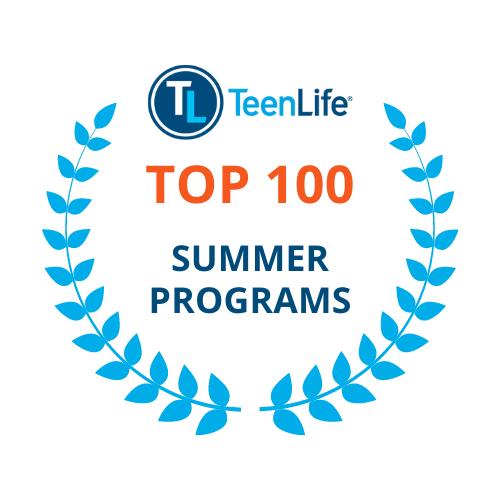The Engineering Summer Academy at Penn offers a unique summer opportunity for a select group of motivated and talented high school students. Experience rigorous and challenging college-level studies at our high-tech, ivy-league program in the heart of Philadelphia!
Whether students are local to the area or hail from halfway around the world, we welcome them to explore what the Engineering Summer Academy at Penn - University of Pennsylvania has to offer. ESAP is designed to provide exceptional STEM students the opportunity to explore the field of Engineering before applying to college. Situated on our historic Philadelphia campus, right in the heart of the city, pre-college students can also take advantage of the vast array of activities and resources available to the Penn community.
Coursework incorporates exciting STEM subjects and material. High school students enroll in one of our six offered courses:
- Artificial Intelligence - In this dynamic program, top high school students will explore the realm of artificial intelligence, focusing on generative AI and neural networks. The course merges core theoretical knowledge of AI principles with practical generative tools. Students will learn key mathematical concepts behind machine learning and neural networks, and apply these in creating custom AIs. The hands-on curriculum, culminating in a final project, allows students to craft unique AI applications. A solid mathematical background is recommended, and while familiarity with chat-GPT and some programming is beneficial, it is not essential.
- Biotechnology - In this course, students will learn some of the fundamentals of molecular biology and have the chance to do hands-on genetic engineering. Students apply what they learn in the classroom by performing molecular cloning experiements in the laboratory. A group research project and journal club discussions round out this enriching course. Eligible students should have at least 1 year’s coursework in Biology and Chemistry.
- Computer Graphics - Students will be introduced to the character pipeline for video games and animation. It will include design, anatomy, modeling, texturing, rigging, programming, and animation. Beginning with clay modeling and sketches, students will quickly progress to utilizing some of the most advanced software in the industry (such as Alias, Maya, and Photoshop) to create their own animated character. Although it may be useful, prior experience with modeling tools (i.e. Photoshop, Maya, etc) is not a prerequisite for this course.
- Computer Science - This course will be introduce both the practical work of programming and the important foundations of computer science. Using a variety of programming languages, students will learn about abstraction, modularity, objects, loops, arrays, classes, and OOP. This course is for beginners with little to no experience with programming, but students who have already taken an AP-level computer science course can benefit from the intense and rigorous college-level curriculum.
- Nanotechnology - Through lecture, lab, and group projects, the course will cover topics in nanomaterials, nanofabrication techniques, imaging nanostructures, real-life applications of nanotechnology, nanoscience ethics, and other concepts necessary to understanding why very small systems exhibit unique behavior. Eligible students should have coursework in Chemistry.
- Robotics - Students will be introduced to the state of the art in robotics, design, manufacturing, and automation. The course ties together engaging classroom discussions on a variety of topics including sensing, actuation, control, and embedded programming with a rigorous series of laboratory exercises and projects. The course will culminate in a group project in which students will design, fabricate, assemble, and program teams of small mobile robots to perform a series of tasks using a combination of autonomous actions and teleoperator control. Eligible students should have prior coursework in Physics, Math, and C programming or Autocad.
Summer Academy Eligibility
Admission to ESAP is highly selective, and each required element of the application is taken into careful consideration. Students who succeed in our program demonstrate a history of academic excellence, creative thinking skills, and the ability to work well independently and in a group setting. They also exhibit the motivation to take an active learning role in a fast-paced college environment. Applicants must have completed their freshman year of high school (ninth grade) and be 15 years old by the start of the program (move-in day).
To find out more about our costs and session dates, be sure to check out our website: https://esap.seas.upenn.edu/about/financial-information/



 Recently Updated
Recently Updated


















